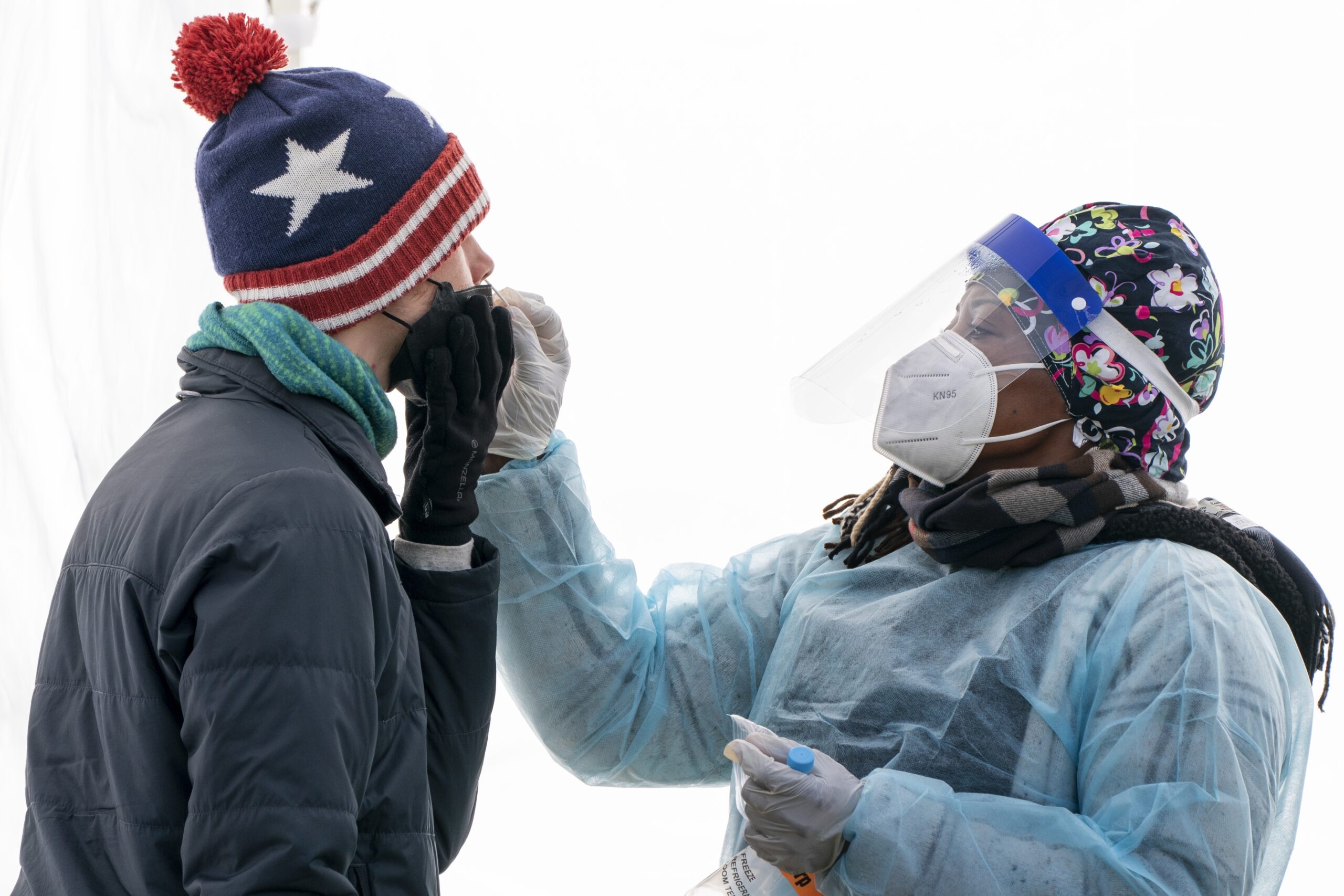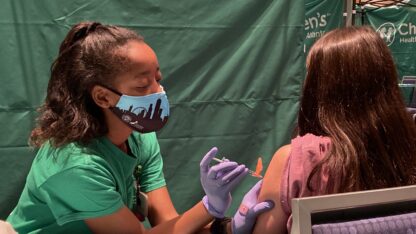COVID-19’s omicron wave is rapidly pushing up the number of patients infected with the virus in Georgia hospitals, particularly in the Atlanta area.
The number of patients hospitalized statewide with the virus has climbed by more than 50% in a week, rising above 1,900 on Monday. That’s the highest number since mid-October, when patient numbers were still falling after hitting a state record of more than 6,000 in early September.
The seven-day average of COVID-19 cases in Georgia rose to nearly 8,700 a day on Monday, according to the state Public Health Department. That’s nearing the peaks that Georgia saw in infection numbers in early January and early September.
The share of positive molecular PCR tests hit an all-time high of almost 31% on Monday. Enough positive tests have been recorded to account for more than 1% of all residents across a 19-county metro Atlanta area in the past two weeks. That’s 2 1/2 times the rate of positive tests in Georgia’s other 140 counties in the same period.
The crush is being seen in Atlanta-area emergency rooms. As of Monday evening, 21 Atlanta-area emergency rooms were turning away ambulances, while only 10 ERs at hospitals caring for adults were receiving them, according to state data. Among those turning away emergency medical transports were the flagship hospitals of three of the area’s four major hospital systems: Emory, Piedmont and Northside.
Officials are urging people who need testing not to tie up emergency rooms, but to instead seek out testing sites and pharmacies.
Dr. Danny Branstetter, director of infection prevention for the 10-hospital Wellstar Health System, said infections are spreading and manifesting symptoms at least as quickly and maybe more quickly as the delta variant.
“Hospitalizations are not rising as rapidly as previous surges,” Branstetter said. “However, hospitalization is a lag from new diagnosis of infection. So we may see hospitalization start to increase in the next week or so, hopefully not to the same exponential rate.
Branstetter said there is “a potential” for hospital capacity to be exceeded, especially as health workers get sick themselves.
“We’re seeing an increase spread amongst our healthcare providers now,” he said. “So that maybe even limit our healthcare personnel available to provide care even further.”
Branstetter said he’s also worried about a limited supply of effective monoclonal antibodies, which had been an useful therapy during the delta wave. He and other officials said vaccination and booster shots remain the most effective way of preventing severe illness.
Katherine Watson, spokesperson for the five-hospital Northside system, said that COVID-19 patients accounted for 25% of the system’s total adult inpatient population as of Monday.
Watson said the hospitals continue to manage bed capacity.
“We expect the increase to continue, but don’t know yet what the full impact will be to our inpatient census,” Watson said.
Deaths are also inching up, now averaging more than 20 a day. More than 31,000 people in Georgia have died from COVID-19, according to state numbers.
In a hospital district that includes Cobb, Cherokee, Douglas and Paulding counties, COVID-19 patients made up almost of a quarter of all patients on Monday, according to state data.
Amid overwhelming demand for COVID tests, Georgia Attorney General Chris Carr and Public Health Commissioner Kathleen Toomey warned people to make sure they are using a valid testing center and aren’t being overcharged.
“Misinformation from unapproved COVID tests could result in people not following isolation and quarantine protocols and lead to further transmission of the virus and serious or life-threatening illness,” Toomey said in a statement.
They also warned against accepting services from people going to door-to-door or approaching others on the street and said it could be a sign of a scam if someone tries to charge for an in-person test.
Georgians can find some testing sites at https://dph.georgia.gov/covidtesting, although that list may not include many private testing sites.
Carr said his office is aware of reports of overcharging for tests and urges consumers to report potential price gouging at consumer.ga.gov or by calling 404-651-8600.









